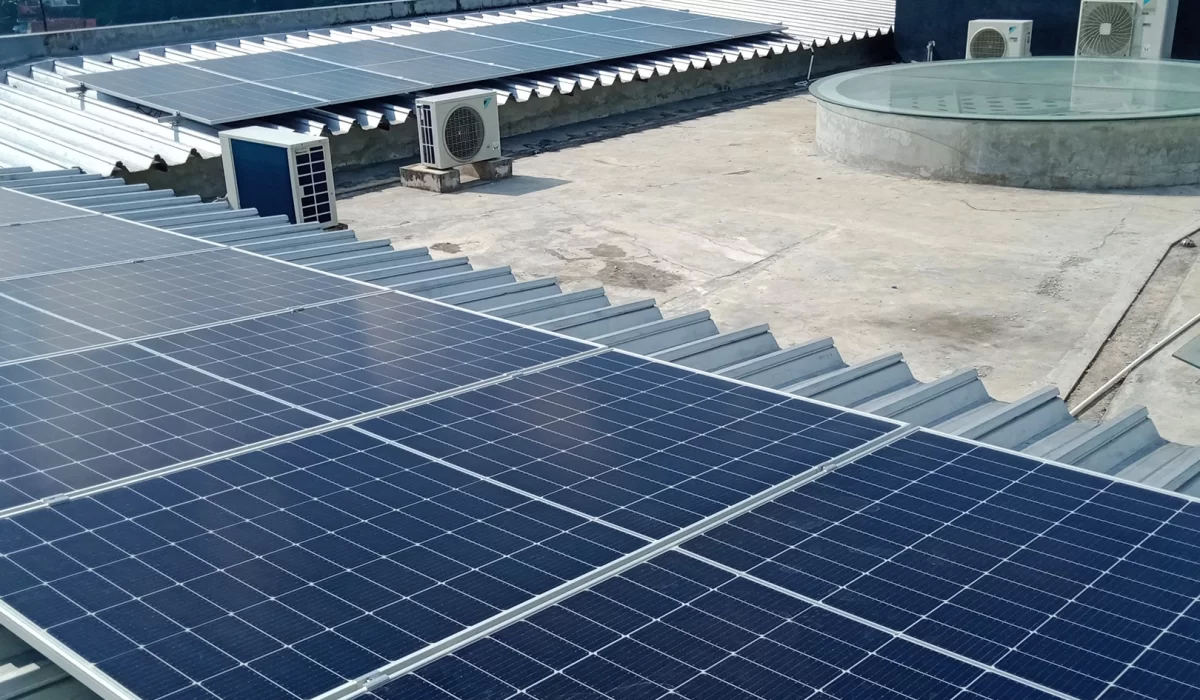The world is at a turning point in history, where the actions we take today will have a profound impact on the future of our planet. With growing concerns about climate change and environmental degradation, there is an urgent need to shift towards cleaner and more sustainable energy sources. And as we look towards the future, it is clear that renewable energy, solar photovoltaic (PV), and battery technologies will play a pivotal role in meeting our energy needs while reducing our carbon footprint. These innovations not only hold the key to a more sustainable future but also offer exciting opportunities for technological advancement and economic growth.
The growing demand for sustainable energy sources has led to an increased focus on renewable energy, which is seen as a viable alternative to traditional fossil fuels. Renewable energy sources such as solar, wind, hydro, and geothermal power are becoming increasingly cost-competitive with conventional fuels, making them more attractive to investors and energy consumers alike.
One of the most promising forms of renewable energy is solar power. Solar photovoltaic (PV) technology, in particular, has been rapidly advancing and becoming more affordable over the years. PV cells convert sunlight directly into electricity, making it a clean and reliable source of energy. Solar PV systems can be installed on rooftops, in large solar farms, and even on the surface of bodies of water. In addition to being a sustainable source of energy, solar PV also has the potential to create jobs and boost local economies through the manufacturing and installation of solar panels.
Another renewable energy source that is gaining momentum is battery technology. Batteries are an essential component of renewable energy systems because they allow energy to be stored and used when needed. This is particularly important for sources like solar and wind power, which can be intermittent depending on weather conditions. Advances in battery technology, particularly in lithium-ion batteries, have made them more affordable and efficient, making them an attractive option for energy storage. In addition to being used for renewable energy systems, batteries are also used in electric vehicles, which are becoming more popular as a sustainable mode of transportation.
Renewable energy sources like solar and battery technology have the potential to revolutionize the way we generate and use energy. By reducing our dependence on fossil fuels, we can help mitigate the effects of climate change and create a more sustainable future. Governments and private companies are investing heavily in renewable energy research and development, which is driving down costs and making these technologies more accessible. With continued innovation and investment, the future of sustainable energy looks bright.
It is important to note that while renewable energy sources like solar and battery technology are promising, they are not without their challenges. For example, the production of solar panels and batteries requires the use of certain materials, some of which may have negative environmental impacts. Additionally, the disposal of batteries and solar panels at the end of their life cycle can also be an issue. However, these challenges are being addressed through research and development of more sustainable materials and improved recycling and disposal methods. Overall, the benefits of renewable energy sources far outweigh the challenges, making them a crucial component in the transition to a sustainable energy future.
One challenge associated with solar energy is the need for adequate land use. Solar panels require large land areas for installation, which can be a challenge in densely populated areas where land is limited. However, researchers are exploring new ways to maximize the use of existing land, such as integrating solar panels into infrastructure like roads, buildings, and parking lots. This approach, known as building-integrated photovoltaics (BIPV), not only reduces the need for additional land but can also lower installation costs and increase energy efficiency.
Another challenge associated with battery technology is the need for safe and sustainable production methods. Some battery materials, such as lithium, cobalt, and nickel, are associated with environmental and human rights concerns, particularly in countries where mining operations are poorly regulated. However, companies and researchers are exploring alternatives, such as using recycled or sustainably sourced materials, to address these concerns. Additionally, efforts are being made to improve the efficiency and durability of batteries, reducing the need for frequent replacement and disposal.
Overall, while renewable energy sources and battery technology are not without their challenges, ongoing research and development are addressing these concerns and driving innovation in the field. As these technologies become more efficient, cost-competitive, and sustainable, they will play an increasingly important role in the transition to a cleaner, more sustainable energy future.
Ongoing research and development in the field of renewable energy and battery technology is driving innovation and finding solutions to current challenges. Researchers and scientists are working tirelessly to improve the efficiency and performance of renewable energy technologies and reduce the negative environmental impacts associated with their production and disposal. For example, the use of more sustainable materials, such as organic or biodegradable components, is being explored to make solar panels and batteries more eco-friendly. Moreover, there is ongoing research to improve recycling and disposal methods to minimize the environmental impact of renewable energy technologies. As these efforts continue, renewable energy sources and battery technology will become increasingly sustainable, making them a key component in the transition to a cleaner and more sustainable energy future.
The growing demand for renewable energy and battery technology is also driving investment and collaboration between public and private sectors. Governments are offering incentives and subsidies to encourage the development and adoption of renewable energy sources, and businesses are investing in the research and development of new technologies. This collaboration is accelerating the pace of innovation and reducing the cost of renewable energy sources, making them more accessible to consumers and businesses alike. As the demand for sustainable energy sources continues to grow, these partnerships will become even more important in ensuring a successful transition to a cleaner and more sustainable energy future.
In conclusion, while there are challenges associated with renewable energy and battery technology, ongoing research and development are driving innovation and finding solutions to these issues. As these technologies become more efficient, cost-competitive, and sustainable, they will play an increasingly important role in the transition to a cleaner, more sustainable energy future. By investing in renewable energy and battery technology and collaborating across public and private sectors, we can build a more resilient and sustainable energy system that benefits both the environment and society as a whole.
As we move towards a more sustainable future, it is clear that renewable energy, solar PV, and battery technology will play a critical role in achieving our goals. From reducing greenhouse gas emissions to improving access to energy in remote areas, the benefits of these technologies are far-reaching and undeniable. While there are challenges to be addressed, ongoing research and development are driving progress and paving the way for a cleaner, more sustainable energy future. Let us continue to embrace and invest in these innovative solutions to create a brighter tomorrow for generations to come.


